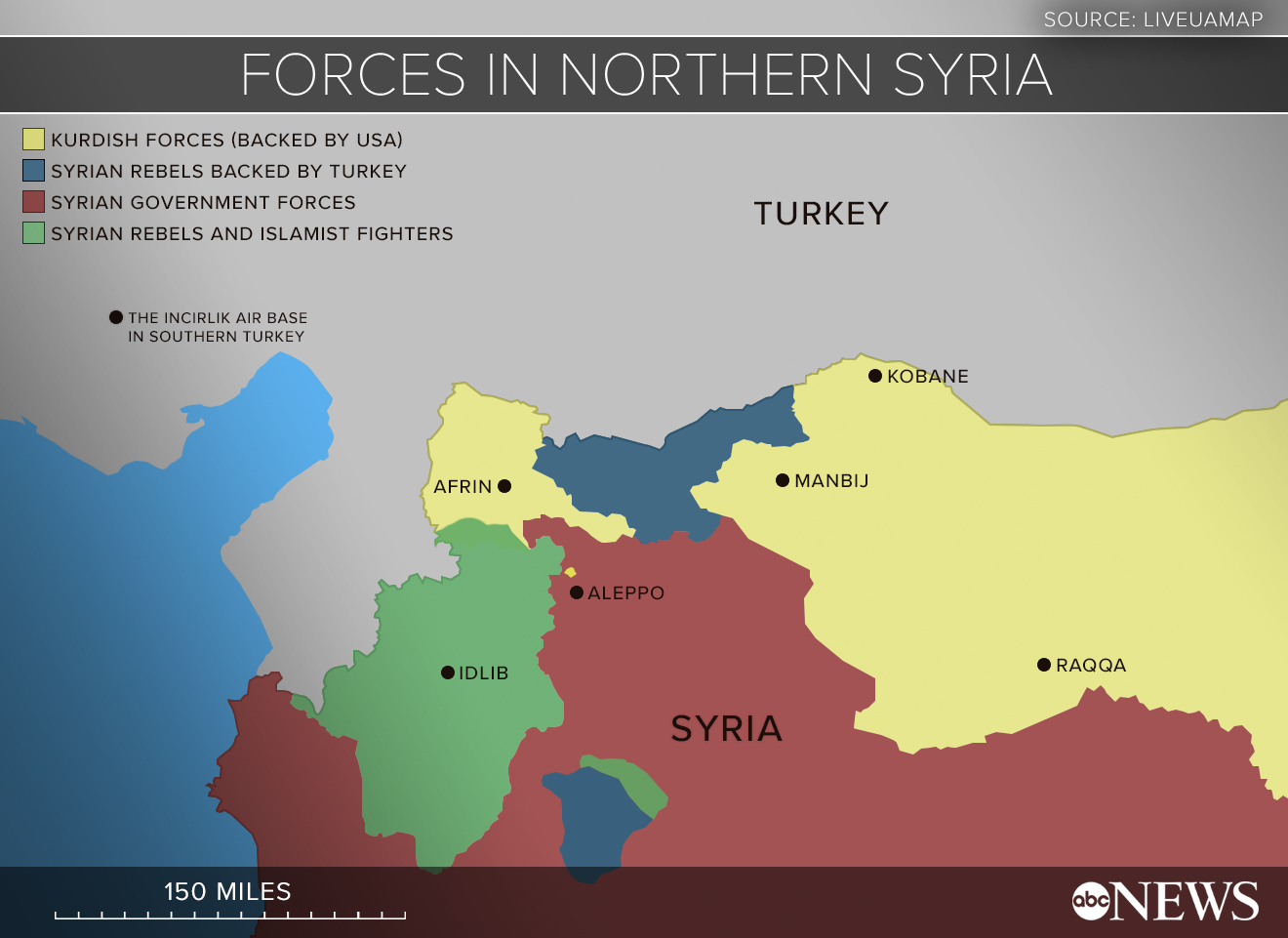What Turkey's incursion into Syria means for the US
The US is confronted with a NATO ally taking on its main partner in Syria
—LONDON -- On Saturday, Jan. 20, the Turkish Armed Forces announced an operation to oust Kurdish militia from the town of Afrin, in northern Syria. Later that day Turkish President Recep Tayyip Erdogan added that the offensive would be followed by an operation in Manbij, further to the east –- where U.S. forces are currently stationed.
The U.S. has good reason to be concerned. Up to 2,000 American troops are in the area supporting their allies in the fight against ISIS -– the Syrian Democratic Forces, a mix of Kurdish and Arab fighters who have been instrumental in removing jihadists from their Syrian strongholds in Raqqa (once the de facto ISIS capital) and Deir ez Zor.
Strong support from the Pentagon turned the tide and led to strategic gains, no doubt alarming Turkey. Why?
Turkey’s troubled relationship with the Kurds
Kurds make up the fourth largest ethnic group across the Middle East. They have their own culture, language and ethnicity that unites them across borders, but they have never had their own state.
Turkey has a sizable Kurdish population mainly in the east of the country. Fears that the Kurds would secede from Turkey have contributed to increasing hostility between the state and the community –- which makes between 15 and 20 percent of the Turkish population.
This has spilled over and resulted in bombings and attacks carried out by Kurds, and in turn met with punitive military assaults by Turkish forces.

Turkey’s concerns in Syria
The Syrian Kurds formed an armed wing under the Democratic Union Party –- a Kurdish political party based in northeastern Syria. Ethnic Kurds from Iraq and Iran as well as Syrian Kurds joined forces in the fight against ISIS.
A powerful military that united Kurds from across several borders bolstered Kurdish ambitions back in Turkey – peace talks with the Turkish state failed in 2015 and violence resumed.
Turkey also claims that Syrian Kurds have links to Turkish Kurds –- in particular the Kurdistan Workers’ Party, or PKK, that is designated a terror group by the international community, including the U.S.
Now following a series of strategic victories for the Kurds in Syria, Turkey has decided to step in.
How the U.S. is involved
Initially, Turkish reluctance to contribute to the operations against ISIS in Syria led the U.S. to partner with the only other viable fighting force in the land -– the Syrian Kurds.
In 2015 the Syrian Democratic Forces (SDF) were formed together with Syrian Arab rebel fighters, initially numbering several thousand fighters. Washington sent them arms and supplies, and supported the campaign to drive ISIS from wide areas in northeastern Syria.
The SDF have been the U.S.’s most effective fighting partners on the ground, directly confronting ISIS fighters and calling in U.S. airstrikes on jihadist positions.
What next?
The US is in a tricky position. Turkey is a NATO member, and key ally. American access to the major air base at Incirlik in southern Turkey has been central to the US’s efforts against ISIS.
President Donald Trump on Wednesday urged Erdogan to curtail his operation in the area given the presence of US troops in Manbij, further east from Afrin where the operation started. It’s also close to the border town of Kobani, where Turkey (reluctantly) cooperated with Kurds in their fight to drive ISIS fighters out back in 2015.
After carefully-worded initial statements from Secretary of State Rex Tillerson and White House Press Secretary Sarah Sanders, the Pentagon on Friday came out with stronger words and criticism on the Turkish offensive.
The Joint Staff Director Lt. Gen. Kenneth F. McKenzie Jr. said that it was “not helpful to have these operations go on,” and that it was damaging to the overall effort against ISIS. He added, “We’re working with the Turks to try and minimize it.”